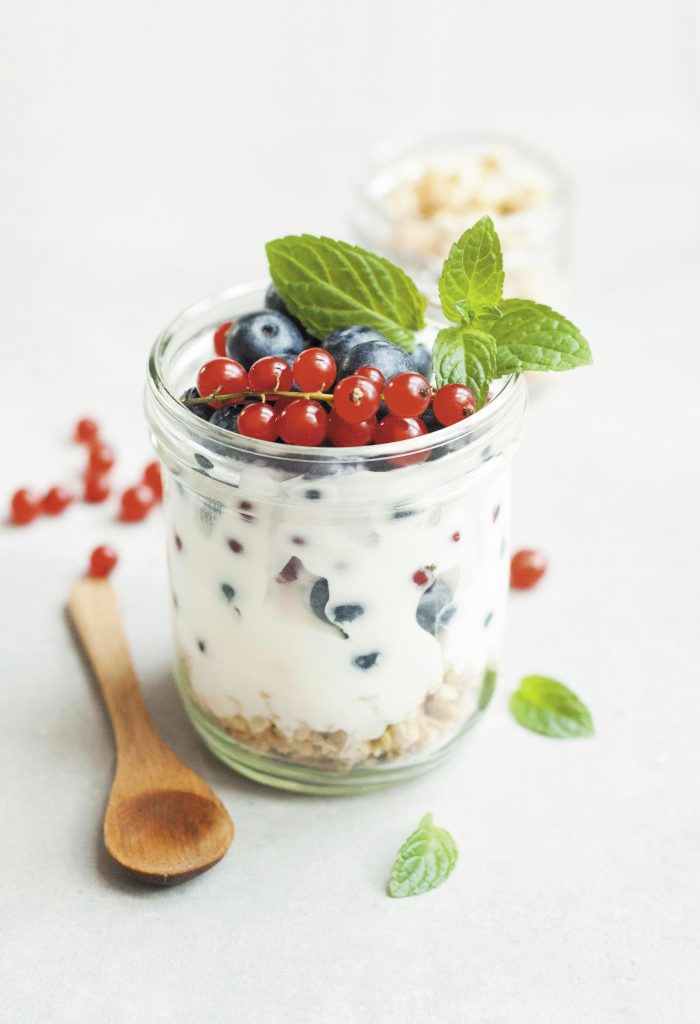Ever feel like you’re not alone in your body? You’re not wrong. If you think about it, you’re practically a walking, talking Airbnb for trillions of microscopic guests. Yes, I’m talking about bacteria, particularly the kind that reside in your gut, aka the microbiome. These little guys don’t just hang out rent-free. They actually play a crucial role in your health, happiness, and yes, even your waistline. Today, we’re diving into the wonderful world of probiotics and exploring how they may actually be the wingmen you need on your weight-loss journey.
Meet the Microbiome: Your Inner “Mini-Me”
Before we talk probiotics, let’s get to know their extended family, the gut microbiome—a unique ecosystem populated by trillions of bacteria, fungi, and other microorganisms, all working tirelessly to help you digest food, fight off intruders, and keep your gut’s social scene lively. Your microbiome is as unique as your fingerprint, and it’s influenced by your diet, lifestyle, environment, and even your DNA.
In recent years, researchers have discovered that the makeup of our microbiome may significantly influence body weight. Yep, your gut flora could be behind those stubborn pounds that just won’t budge, even if you’ve become a professional at drinking kale smoothies. Studies show that people with a greater diversity of gut bacteria tend to have lower body weight, whereas an imbalance of “bad” bacteria can be linked to weight gain and even metabolic issues.
Probiotics 101: The Good, The Bad, and The Skinny
So, what are probiotics, anyway? These are the “good” bacteria—think of them as the friendly houseguests who offer to do the dishes instead of leaving a mess in your intestinal tract. Probiotics are found naturally in some foods like yogurt, kefir, sauerkraut, and miso, or in supplements that come in capsules, powders, and chewable gummies for those who like a side of nostalgia with their gut health.
Unlike regular bacteria that freeload in your system, probiotics come with a mission: they help balance the gut microbiome, crowding out “bad” bacteria and supporting overall health. But how does that relate to weight loss? Let’s break it down!
Join Our Mailing List
Register now to get our hints and tips newsletter directly to your inbox
1. The Hunger-Slaying Effects of Probiotics
Remember those days when you could polish off an entire pizza, then feel ready for dessert? (Who are we kidding—dessert is mandatory!) Some studies suggest that probiotics may actually influence the production of appetite-regulating hormones, like leptin and ghrelin, making it easier to recognize when you’re full and ready to say “no thanks” to round two. Certain strains of probiotics, such as Lactobacillus gasseri, have shown potential in reducing appetite and even shrinking waistlines, in addition to improving the body’s ability to burn fat.
But let’s be real: just because you popped a probiotic capsule doesn’t mean you can inhale an entire pizza and expect miracles. Probiotics can support you in the fullness department, but they aren’t magic beans. They work best when teamed up with balanced eating and reasonable portion sizes. They’re your “accountability buddy,” not a wand-waving wizard.
2. Kicking Cravings to the Curb
Ah, cravings—the silent saboteurs of every diet plan. You can be trucking along just fine, eating clean, and then bam! You’re hit with a craving for double-fudge brownies at 11 p.m. You might wonder if your gut bacteria have formed a sinister chocolate-loving cartel.
Turns out, the composition of your gut microbiome can influence cravings. A balanced gut with a healthy population of probiotics can help lower inflammation and regulate blood sugar, which means fewer intense cravings and less roller-coastering blood sugar. Some strains of probiotics, like Lactobacillus rhamnosus, are known for their anti-inflammatory properties, which can help reduce your desire for those nutritionally questionable late-night snacks.
3. Probiotics and Fat Absorption: The Great Block Party
Here’s where probiotics get sneaky with fat. Certain probiotics can limit the amount of dietary fat your body absorbs, potentially sending that fat to the exit before it even has a chance to settle in your hips. In other words, they help your body treat some fat like an unwelcome guest at the party, showing it the door before it has the chance to hang around (literally).
Studies have shown that Lactobacillus strains, in particular, may prevent fat from being stored in the body, which in turn supports weight loss. It’s like having a bouncer at the entrance to your metabolism, making sure the wrong fats don’t make it past security.
4. Gut Health, Mood, and Motivation—A Surprising Connection
Who knew the gut was so chatty? It turns out your gut and brain are constantly texting each other, and what’s happening in your belly affects your mood more than we once thought. Probiotics, particularly those in the Bifidobacterium and Lactobacillus families, have been shown to boost the production of neurotransmitters like serotonin—your brain’s “happy hormone.”
When you feel good, you’re more likely to make healthier choices, stay active, and resist that urge to drown your sorrows in a bag of chips. A well-functioning gut can give you the kind of mood support that makes long-term weight loss more feasible. When you’re not feeling constantly cranky or fatigued, sticking to healthy routines becomes less of a chore and more of a lifestyle.
How to Choose the Right Probiotic for Weight Loss
Not all probiotics are created equal, and not every strain will support weight loss goals. Some key players include:
- Lactobacillus gasseri: Often studied for its potential to reduce belly fat and lower body weight.
- Bifidobacterium breve: Linked with reduced body fat and improved metabolism.
- Lactobacillus rhamnosus: Known for reducing body fat and regulating blood sugar.
Each strain has its own set of benefits, and depending on your goals, you may want to choose a supplement that includes a variety of these probiotics. Look for products that specify the CFU (colony-forming units), as higher numbers often indicate greater effectiveness. Around 10-20 billion CFU per serving is a good baseline if you’re aiming for noticeable effects.
Real Talk: The Probiotic Pitfalls
Probiotics sound like the superheroes of gut health—and for many people, they really are. But they’re not a one-size-fits-all solution. Not everyone responds the same way to probiotics, and some people may experience gas, bloating, or digestive discomfort, especially when first introducing them. Always start with a lower dose and gradually increase to avoid any gastrointestinal surprises.
And if you’re tempted to load up on probiotic yogurt or other foods to lose weight, keep an eye on added sugars. While these can boost your probiotic intake, sugary yogurt could potentially add more calories and even counteract the benefits.
Final Thoughts: Teaming Up with Your Gut for Weight Loss
Weight loss is already a tough game to play, so why not stack the odds in your favor by letting probiotics lend a helping hand (or, well, a helping gut)? They aren’t an overnight fix, but with consistency and the right strains, they may just be the support crew you need on your journey. Probiotics can aid with digestion, control appetite, reduce cravings, and even boost your mood—all while keeping you regular (and let’s face it, that’s worth celebrating all on its own).
In the end, remember that weight loss is a marathon, not a sprint. So next time you’re tempted by a trendy cleanse or extreme diet, consider inviting some helpful bacteria to the party. With the right mix of probiotics, a balanced diet, and a sense of humor, you’ll be well on your way to a healthier you—inside and out! Cheers to your gut buddies and their role in making weight loss just a little easier.




